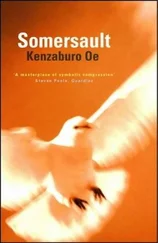The study/bedroom where I worked and slept was on the western end of the second floor, along with a library and one other bedroom. By prior agreement, the entire area had been declared a “no trespassing” zone. As for the ground floor, the northeastern quarter had originally been designed to serve as a parlor or drawing room, but it had never been used. The southern wing included the main entry area where people shed their shoes, a rather cramped foyer, a guest bathroom, and a staircase to the second floor. On the northern side, separated from the narrow foyer by a door, were the dining room and, one step down, the slightly sunken great room. Like the dining room, the large living area featured a massive plate-glass window that looked out on the back garden. Finally, on the west end, there were two guest bedrooms for visiting family members, with a shared bathroom.
“We’ll have the guys move the furniture from the great room — the table and chairs, the movable bookshelves, the sofa, and the television set — into the parlor,” Unaiko said briskly. “Last year, when it didn’t look as if you would be returning to the Forest House any time soon, we took Asa up on her kind offer and started using the entire first floor as a rehearsal space. If we clear out the great room now, the southernmost portion can be used as a stage. And if we move the big table out of the dining room, the area can be used for audience seating as well.”
“That sounds fine,” I said. “Back in the days when I used to come to the Forest House every year, if I wasn’t upstairs reading books or doing some work, I could usually be found stretched out on the sofa on the western side of the great room. I’d be grateful if you could leave that one sofa where it is, but feel free to shuffle everything else around however you wish. Asa has probably told you about this already, but I once used this room as a sort of minitheater myself. I invited a group of professional musicians who had recorded a CD of a little composition of Akari’s, and we put on an informal concert. We seated my mother and Asa and a few other guests directly in front of the stage, with the overflow in the dining room. This room has a high ceiling, so the acoustics were quite extraordinary.”
“We’ll be doing a bunch of different things here, too,” Unaiko told me. “Once we’ve conducted our interviews with you and incorporated the relevant bits into the master script, we’ll be staging some rehearsals. We were also talking about the fact that you’ve never seen the Caveman Group in action, and we were thinking we’d like to put on a compressed version of Wipe My Tears Away, specially for you.”
With that, Unaiko bounded off to the dining room. She placed both hands on the counter and looked around, then gazed up at the high ceiling with obvious approval.
“As a rule, the Caveman Group’s public performances take place on a stage that’s on the same level as the audience seating,” she said. “We often use a theater-in-the-round arrangement, so if you imagine a ring of spectators on the other side of the glass, peeking in from the garden, you should be able to get a sense of what would be happening onstage in an actual production.”
After the two young apprentices had finished emptying the great room of all its movable furnishings, apart from my favorite couch, Unaiko vacuumed the hardwood floor while I busied myself with opening the smaller windows on either side of the big plate-glass window to let in some fresh air. Masao and Asa were standing there shoulder to shoulder, surveying Chikashi’s horticultural handiwork in the back garden. There were innumerable rosebushes, both in pots and in the earth, where they had spread to the point of becoming ground cover; the pomegranate tree, with its luxuriant foliage; the flowering dogwood; and some tall Japanese white birches. (For the past few years Chikashi hadn’t been able to make the trip down here, so Asa had been tending the garden.)
“These trees look different from the ones in the forest,” Masao said. “Up in Matsuyama you sometimes see flowering dogwoods growing along the road, but they aren’t nearly as tall or as lush as these. Maybe they’re just young, or maybe this is a special spot. But what about these Japanese white birches — isn’t it unusual for them to grow so tall?”
“The trees Chikashi brought were some she’d originally transplanted from the summer house in Karuizawa to the house in Tokyo, and she’d been tending them there for twenty-odd years,” Asa explained. “She rescued several full-grown trees that had been blown down by the strong winds in those mountains, but the ones she raised here from seedlings are also exceptionally tall for some reason. Chikashi was young and energetic in those days, and she really threw herself into cultivating this garden.”
“From the sheer number of potted roses, and the way she seems to have been determined to make the trees grow larger than they normally would, I get the feeling Chikashi might share some character traits with her brother, Goro Hanawa,” Masao mused. “A certain tenacity, and an attraction to the unusual …”
“Goro never showed any particular interest in trees, though,” I said.
“No, but I see Masao’s point,” Asa said. “I noticed a similarity between Chikashi and Goro in the way she helped Akari with his musical education. There’s no such artistic streak in our family. Actually,” she added, looking at me, “when you met Goro, while you were both going to school in Matsuyama, weren’t you captivated by that aspect of his personality?”
“Well, Goro was definitely a rare human being,” I said. “For one thing, because he took an interest in the story of our father’s drowning, he was the first person I ever confided in about the recurrent dream, outside of our immediate family.”
“Yes,” Masao remarked, “I remember Goro used to say things like ‘Yes, but Choko has Kogii !’ So I guess he thought you were pretty special, too, having your own personal guardian angel and all. Anyhow, the bottom line is that the images of both Kogiis — you and your alter ego — are etched into my mind, and that duality is forming the basis for this project we’re going to be working on together. Speaking of which, we’ve decided on the basic layout of the stage, but what we need to get a handle on now is how to present the interviews we’ll be doing with you. Needless to say, if you’d like to propose any changes to the staging we would be totally receptive. Now, for starters, can we talk a bit about Kogii?”
Masao Anai’s request seemed perfectly natural, and I had no objection. Just as she had done the previous time, Unaiko placed the recording equipment on the divider between the dining room and the great room, then attached a microphone to my collar. Masao dispatched the muscular young apprentices to the drawing room to retrieve a couple of armchairs, which they quickly placed in the center of the impromptu stage. Watching this smoothly orchestrated transition, I felt as if I was being borne along on a wave of competence: a force of nature that was clearly beyond my control.
“Please make yourself comfortable,” Masao said to me. “We may use a different approach later on, but for now I’m simply going to stand in front of you and start talking. If I find myself getting tired, I’ll grab a chair and sit down. You’ll already be sitting, of course, but if you want to stretch your legs at any point please feel free to stand up and walk around. Your wireless microphone will work anywhere in the room.
“The way you’re sitting, facing straight ahead — please imagine that you’re looking out at the big round stone we moved into the back garden the other day. The poem carved into the stone begins with two lines that we’ve agreed to call a haiku, strict rules of poetry aside. Let’s start with the first line: You didn’t get Kogii ready to go up into the forest. We know this ‘Kogii’ is different from the ‘Kogii’ character who appears in some of your novels, but …”
Читать дальше










